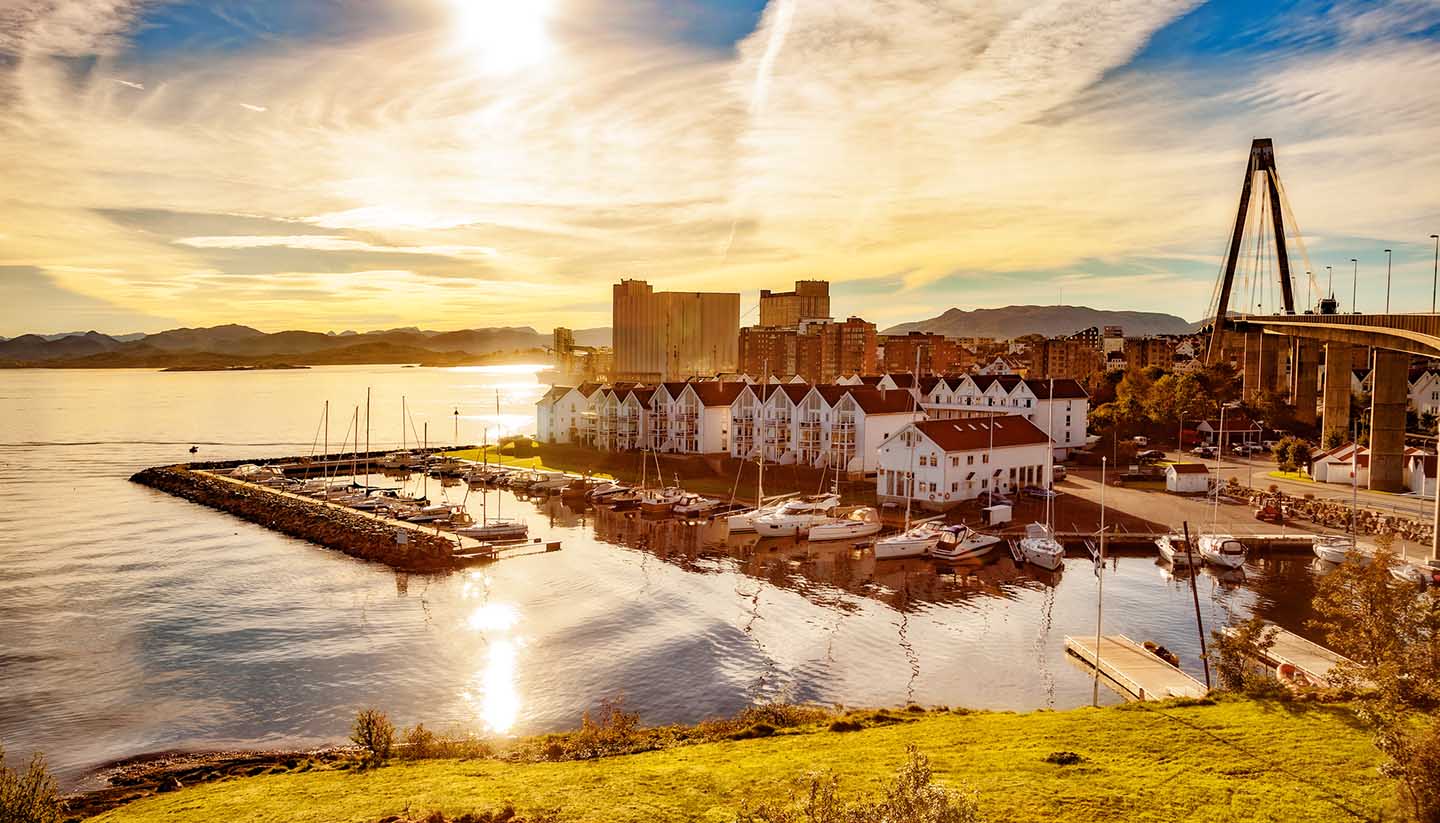Stavanger Travel Guide
About Stavanger
Stavanger's modern-day wealth was founded on oil but you certainly wouldn't know this to look at it: cobbled streets, a pretty harbour and some of the most beautiful scenery in Norway belie its petroleum pedigree.
Only the high prices and the Norwegian Petroleum Museum betray the city's now declining reliance on the oil sector, but they're not why tourists visit.
What Stavanger does best is nature, and the mighty Månafossen Falls and iconic Pulpit Rock (a towering hunk of granite overlooking the stunning Lysefjord) are just a short drive away. While most prefer to climb Pulpit themselves, there's a bus available for those who would rather spare their legs the effort.
As dramatic as the surrounding landscape is, there's much to be found in the city itself. Arranged around the harbour, the quaint city centre is an oasis of traditional stave churches, higgledy-piggledy houses and some seriously upmarket boutiques. Dominating the scene is the magnificent 13th-century Stavanger Cathedral whose towering spires are the city's main landmark.
There's no shortage of museums and galleries either. The Petroleum Museum, while sounding deeply dull, is actually rather interesting thanks to a series of interactive displays that get to the heart of what oil is and why it only exists in certain areas. Then there's the Canning Museum which, along with an impressively large collection of vintage tins, whisks you through the history of the city's sardine fishing industry. It too is more fascinating than it sounds.
Of course, thanks to oil, sardines barely get a look in anymore, apart from on toast or slow cooked in butter at one of the city's many excellent restaurants. That doesn't mean, however, you won't see fishermen hauling them in on one of the beautiful golden sand beaches dotted in and around the city. But that's Stavanger for you: part urban, part natural, all beautiful.


